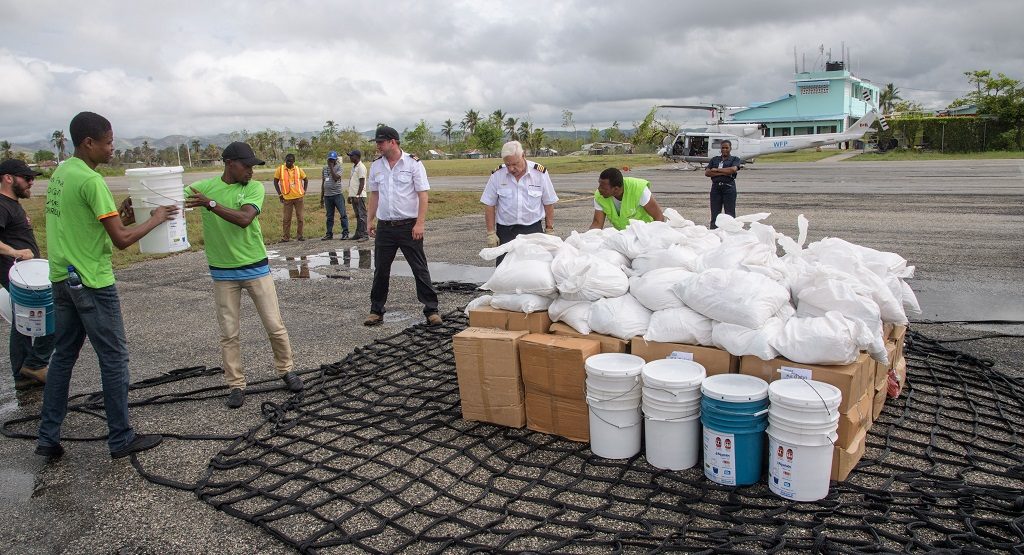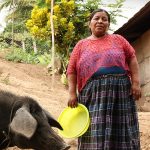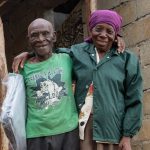
Latin America and the Caribbean 2016
In Latin America and the Caribbean, FCA had 15 staff members and 5 partners.

In Latin America and the Caribbean, FCA had 15 staff members and 5 partners.

“I have learned to cultivate many different varieties and make feed for my pigs. Earlier, I didn’t dare say anything because I don’t speak Spanish, but our teacher said I can use my own language, and now I am comfortable speaking in front of people. Nobody listened to
us before, but that has changed.”
Rosa Lach, Cerro Alto, Guatemala

“We received emergency supplies and food.”
Antonio Janvier and Audicile Montine are relieved. Hurricane Matthew ripped off the roof of the elderly couple’s house. Humanitarian assistance was distributed in Haiti’s Haut-Maturin quickly after the hurricane.
FCA’s HAITI country programme was shaped by two factors in the course of 2016. In June it was decided that due to the major cuts which occurred in government funding in 2015, and with the aim of consolidating its global programme, FCA would close the country programme and exit the country at the end of the year. Therefore the work focused on finalising the projects FCA was implementing.
Another major factor was Hurricane Matthew which hit Haiti in October. FCA was involved in the hurricane response and together with its local partner played a key role in helping local schools to overcome the consequences of the hurricane. Under the circumstances, the closure of the country programme was postponed until April 2017 to ensure proper implementation of the response.
FCA’s long-term involvement in strengthening the disaster preparedness and resilience of schools and communities was proven crucial by the wide damages caused by the hurricane. FCA Haiti’s effective immediate response was another added value of the Haiti country programme in 2016; through a wide network of actors, FCA was able to respond effectively to the needs of the affected population.
FCA continued its engagement in the education sector of Haiti by constructing 4 schools (44 classrooms) and rehabilitating 4 existing schools (24 class rooms) that were damaged by Hurricane Matthew in October 2016.
After the hurricane, FCA also supported provision of psychosocial support and school meals at affected schools. This work also presented an opportunity to strengthen teacher’s skills and improve the availability of education materials through distribution of students’ and teachers’ kits.
Rural livelihoods in Haiti remain fragile and vulnerable to disasters. FCA addressed this problem by helping more than 400 households to apply new, more sustainable farming practices and building the capacity of local authorities in environmental protection and disaster preparedness.
In GUATEMALA Women’s Bank’s female empowerment and livelihood project ended in 2016. The project supported Maya Q’eqchi women in the Alta Verapaz region in their attempts to improve their livelihoods through agricultural training and small-scale loans. The women also received trainings from NGOs and communal women’s groups that supported them in participating more in the decision-making of village communities and municipal governments.
Maya girls are raised to listen to the male members of their families, and are generally not encouraged to express their own opinions. Women are now more confident and express their views firmly. Although only a few women participate in decision-making on a community or municipal level, important steps have been taken in the project to help Maya women forward.